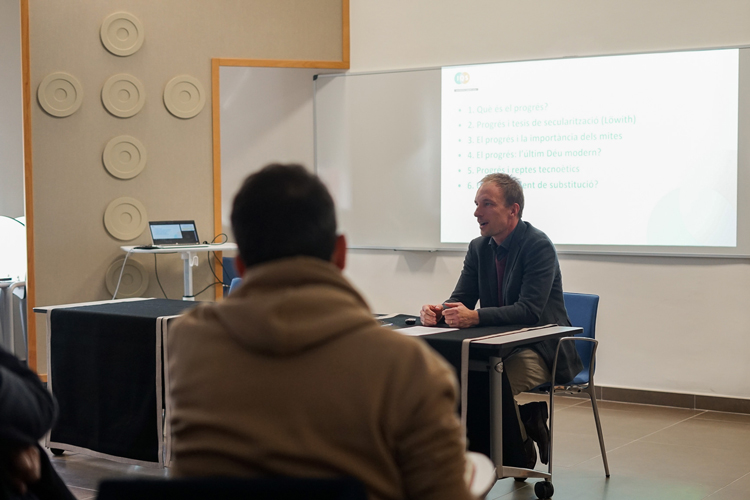“Meaning and transcendence in the 21st century: the challenges of a post-Christian society” was the title of the twenty-fourth annual IQS Symposium, held on 11 January, in which the university’s humanistic culture and ethics come together with its important scientific and entrepreneurial tradition.

“Meaning and transcendence in the 21st century: the challenges of a post-Christian society” was the title of the twenty-fourth annual IQS Symposium, held on 11 January, in which the university’s humanistic culture and ethics come together with its important scientific and entrepreneurial tradition.
Organized by the Department of Ethics and Christian Thought, the symposium annually welcomes experts from all kinds of humanistic fields who are invited to speak about the challenges in our society and how they must be faced responsibly and humanely.
This year’s symposium focused on the topic of secularization. The first guest, Dr Mar Griera, a prestigious sociologist from the University of Barcelona, conducted an analysis on the reality of secularization and religions in Catalan society. Catalonia continues to be one of the most secularized regions in Europe; however, according to Dr Griera, this does not mean that religion is going to disappear. Secularization theories, which predicted that religion would disappear with the progress of modern culture, have been proven to be false. Religion has been transformed, it has become diverse and syncretic, but it is still present, and will remain present in society, the expert explained.
The second speaker, Xavier Casanovas, a professor of Mathematics at IQS and a member of the Department of Ethics who is conducting a doctoral thesis in Philosophy, talked about the idea of progress. Casanovas noted how this notion has replaced society’s religious aspirations, that is, progress is invoked to justify all the efforts and investments in the industrial and scientific fields and, in reality, in all spheres. “All social changes are justified under the idea of progress,” the speaker claimed. Belief in progress is essential in order to accept these changes and make all the sacrifices that they entail.
Lastly, Dr Luis Sepúlveda del Río, with Loyola University Andalusia (UNIJES), addressed multiple types of secularism, insisting on the notion that religion has not withdrawn from the public sphere in a uniform fashion.
The previous annual Symposium, organized by the IQS Department of Ethics and Christian Thought, focused on celebrating the 500th anniversary of the conversion of Saint Ignatius, and was entitled “Wounds and the Human Condition.”










